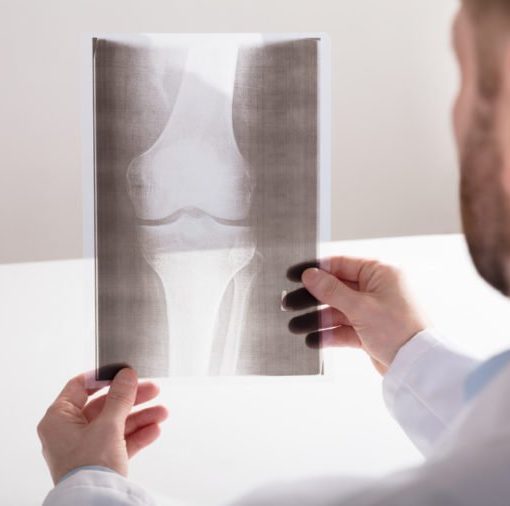Hard to get out of bed in the morning?
Low energy throughout the day?
Feel like you need an afternoon nap?
Hard time losing weight?
Dry skin? Thinning hair?
Cold hands or feet?
Do any of these sound familiar? If so, you may want to take a closer look at your thyroid.
Shocking stats show that 1 in 5 women have a thyroid condition, and 1 in 10 men, yet 50% go undiagnosed.
Your thyroid is a gland in your neck that produces hormones responsible for metabolism. The two main hormones it produces is T3 and T4, and irregular levels are associated with hypothyroidism and hyperthyroidism. The thyroid is actually controlled by the brain, mainly the hypothalamus and the pituitary. When the body is not producing enough T3 or T4, the pituitary releases TSH (thyroid stimulating hormone) to stimulate the thyroid to produce more hormones.
Ok, this all may sound very confusing, and yes, it seems like there are a lot of areas that things can go wrong. So how do we know if your thyroid is functioning at its best.
First, get assessed. Speak to your GP or ND about how you feel and family history. Unfortunately many doctors will not fully assess your thyroid unless there is a family history or if you’re over 50 years old. Tests you should be asking for:
TSH (this is commonly the only marker that gets tested and does not give a fulsome thyroid picture)
Free T3
Free T4
Reverse T3
TPO
Anti-thyroglobulin antibodies
Yes, all of these need to be done. I have MANY patients that tell me their thyroid was tested and they were told it was fine. I look at the blood results from a different practitioner and it only has TSH on it. At this point I requisition a more complete thyroid panel including ALL of the above tests and we frequently get back results showing variable T3 and T4 levels and off the chart TPO (antibody marker associated with autoimmune thyroid conditions such as Hashimoto’s and Grave’s disease).
So now we have more information about the thyroid through testing but what can we do about it. There are a number of factors that contribute to thyroid conditions, like genetics which is obvious, but let’s talk about the less obvious ones.
- Stress! Yep you heard it, stress. Your thyroid hormones and stress hormones (cortisol) have an inverse relationship. When you are stressed out and cortisol is high, then your thryoid function can often slow down. Supporting adrenal function is very important for thyroid health. Stress relieving techniques such as yoga, mindfulness, proper sleep and deep breathing are beneficial along with some great supplements such as a B complex and Magnesium.
- Environmental toxins. Toxins such as pesticides are known hormone disruptors and can interfere with thyroid metabolism. Trying to eat organic foods, or grown your own fruits and veggies is even better. Unfortunately, we are all exposed to things in the air which we can’t control, but you can use air purifiers in your home, glass container instead of plastic, even parchment paper instead of tin foil for baking.
- Nutrient deficiencies can cause dysfunction. Iodine, vitamin D, selenium, omega-3’s, B vitamins and zinc are all required for proper thyroid function. We know that B vitamins are used up faster in the body than other nutrients when we are stressed, so making sure that your levels are optimal is very important. Also, did you know that thyroid cells are very unique in that they are highly specialized to absorb iodine from the blood and incorporate it into thyroid hormones.
- Diet can have a large impact on our bodies. If we choose to eat foods that cause inflammation, this can cause damage in our digestive systems leading to ‘leaky gut’. One of the most common allergens that affects 10 to 20 percent of people is gluten. Studies have shown that a gluten free diet can be beneficial for women with autoimmune thyroid disease. Not so say gluten is the only allergen, but you need to find what YOU are sensitive to and may be causing issues, this is personalized medicine!
The standard of care for treatment for a low thyroid function is to use medication such as Synthroid. Synthroid is T4 (thyroxine) only. Unfortunately, T4 is inactive in the body and needs to be converted to T3, the active version that works on your cells to send messages to your DNA to turn up your metabolism. You need to have certain cofactors present in order for this conversion to happen, selenium, zinc and iodine (Foods rich in these include oysters, beef, crab, pumpkin seeds, sea vegetables, fish, brazil nuts, turkey and cashews). I have found some patients to have higher levels of T4 with insufficient T3 meaning that their bodies are not converting. The solution is not to just add T3 (also known as the medication Cytomel), but is to ensure the body is getting the proper nutrients to make this conversion happen.
Trying to navigate this issue on your own can be overwhelming. If you have suffered for a long time with a thyroid condition, or if this is something you haven’t even considered yet, the best approach is talk to someone who can try and figure out your root cause.



